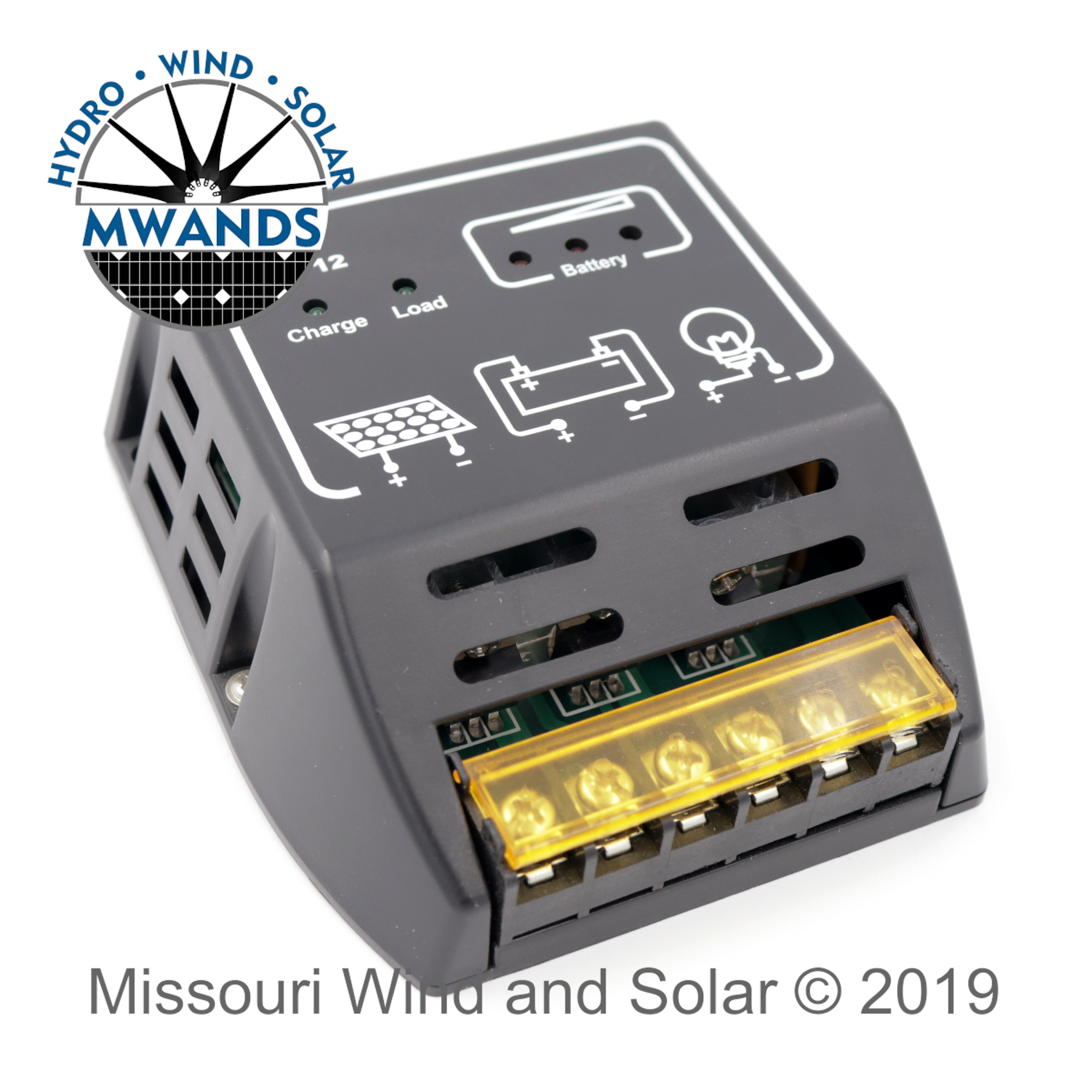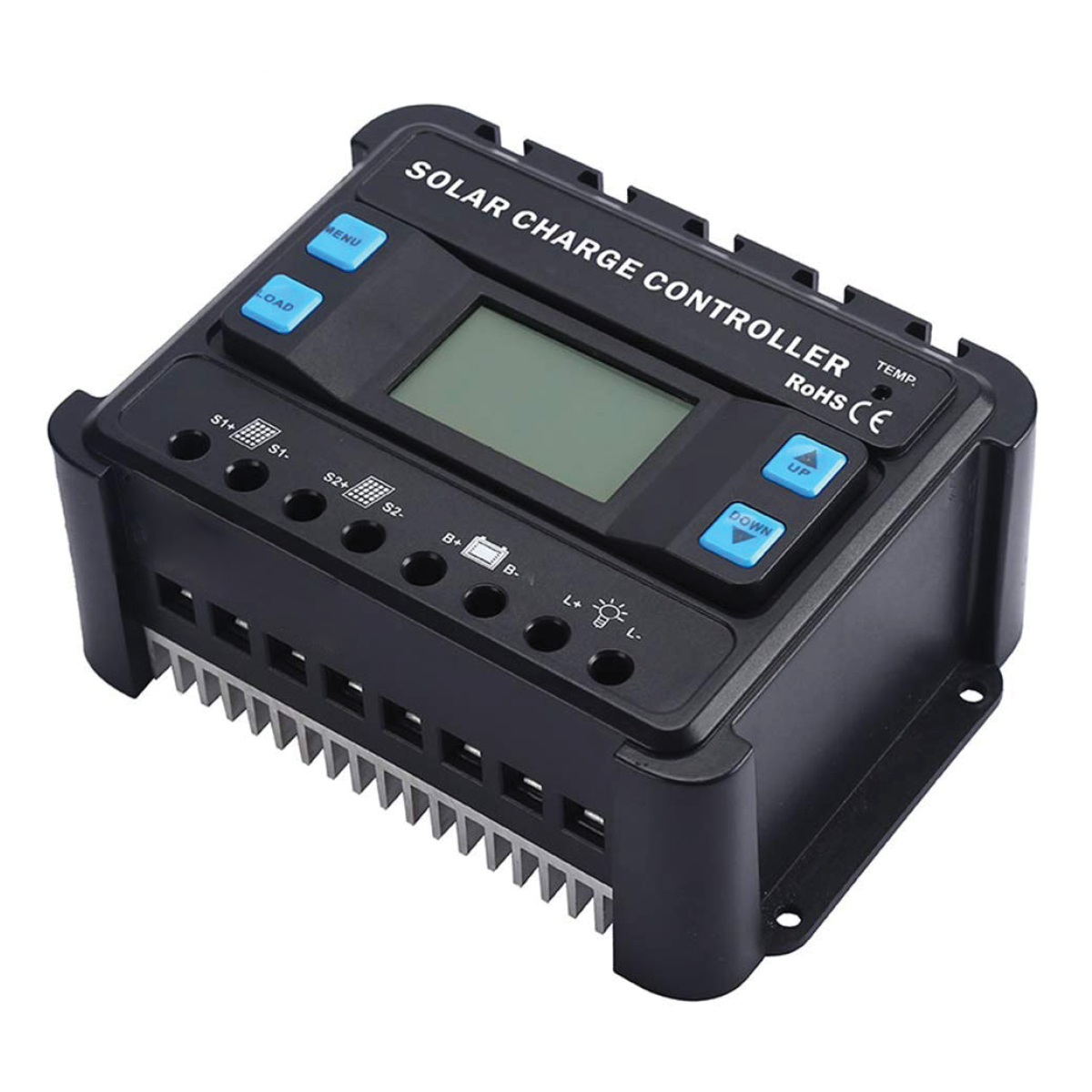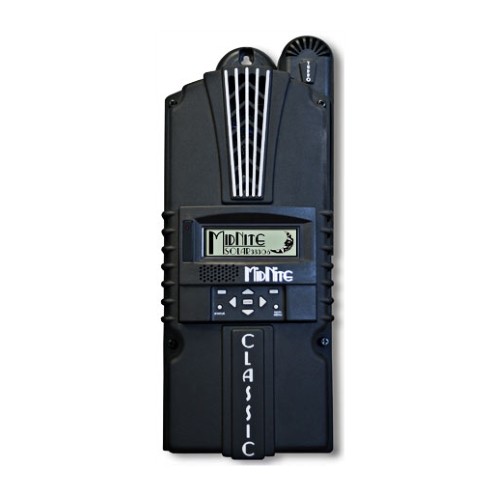Choosing the Right Solar Charge Controller
Choosing the Right Solar Charge Controller
Understanding the Differences
Jeff from Missouri Wind and Solar explains the differences and benefits of using various solar charge controller types. There are so many products on the market that it may be difficult to understand what you need to get the most out of your solar panels, or solar panel array. This video helps you save time and money in choosing the right charge controller the first time.
Exploring Charge Controller Types
Understanding Charge Controllers
A charge controller prevents the incoming power source from over-charging the batteries. Once the charge controller senses that the batteries are full (based on the battery voltage) it will either disconnect or divert the power source. A typical 12 volt battery is "full" at 14.4 volts.
Types of Solar Charge Controllers
Basic Diversion Controller
Inexpensive, short lifespan, easy to use, great for beginner use.
Function: Simply disconnects incoming voltage from solar panels when the batteries are full.

View the Basic Diversion Controller
Pulse Width Modulation (PWM)
Moderate price range, medium lifespan, easy to use, may create interference in radios and TVs, great for intermediate solar knowledge.
Special Feature: Pulse Width Modulation – the charge sends pulses to the batteries to constantly check the state of the battery voltage and will determine how fast to send pulses, and how long (wide) the pulses will be. In a battery that is not fully charged, the pulses would be long and almost continuous while a fuller battery will have shorter pulses.

View the PWM Charge Controller
Multiple Power Point Tracking (MPPT)
Most expensive, increases solar panel efficiency, longest life expectancy, best for advanced solar users.
Special Feature: Multiple Power Point Tracking – increases the output from solar panels by up to 30%, reducing the need for more solar panels. Input is up to 530 volts, but puts out 12/24 volts. Best for battery charging, prolongs battery life.

